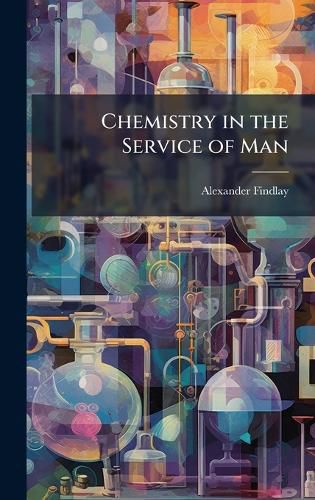Readings Newsletter
Become a Readings Member to make your shopping experience even easier.
Sign in or sign up for free!
You’re not far away from qualifying for FREE standard shipping within Australia
You’ve qualified for FREE standard shipping within Australia
The cart is loading…






"Chemistry in the Service of Man" explores the crucial role of chemistry in various aspects of human life and industry. Originally published in 1917, this book provides insights into the applications of chemistry that were transforming the world at the time. It emphasizes the practical uses of chemical knowledge, highlighting its significance in fields ranging from agriculture to manufacturing.
Written by Alexander Findlay, the book examines the chemical processes behind essential products and technologies. Readers gain an appreciation for how chemistry contributes to the advancement of society and the improvement of daily life. This book serves as a valuable resource for understanding the historical context of chemical science and its enduring impact on modern civilization.
This work has been selected by scholars as being culturally important, and is part of the knowledge base of civilization as we know it. This work was reproduced from the original artifact, and remains as true to the original work as possible. Therefore, you will see the original copyright references, library stamps (as most of these works have been housed in our most important libraries around the world), and other notations in the work.
This work is in the public domain in the United States of America, and possibly other nations. Within the United States, you may freely copy and distribute this work, as no entity (individual or corporate) has a copyright on the body of the work.
As a reproduction of a historical artifact, this work may contain missing or blurred pages, poor pictures, errant marks, etc. Scholars believe, and we concur, that this work is important enough to be preserved, reproduced, and made generally available to the public. We appreciate your support of the preservation process, and thank you for being an important part of keeping this knowledge alive and relevant.
$9.00 standard shipping within Australia
FREE standard shipping within Australia for orders over $100.00
Express & International shipping calculated at checkout
Stock availability can be subject to change without notice. We recommend calling the shop or contacting our online team to check availability of low stock items. Please see our Shopping Online page for more details.
"Chemistry in the Service of Man" explores the crucial role of chemistry in various aspects of human life and industry. Originally published in 1917, this book provides insights into the applications of chemistry that were transforming the world at the time. It emphasizes the practical uses of chemical knowledge, highlighting its significance in fields ranging from agriculture to manufacturing.
Written by Alexander Findlay, the book examines the chemical processes behind essential products and technologies. Readers gain an appreciation for how chemistry contributes to the advancement of society and the improvement of daily life. This book serves as a valuable resource for understanding the historical context of chemical science and its enduring impact on modern civilization.
This work has been selected by scholars as being culturally important, and is part of the knowledge base of civilization as we know it. This work was reproduced from the original artifact, and remains as true to the original work as possible. Therefore, you will see the original copyright references, library stamps (as most of these works have been housed in our most important libraries around the world), and other notations in the work.
This work is in the public domain in the United States of America, and possibly other nations. Within the United States, you may freely copy and distribute this work, as no entity (individual or corporate) has a copyright on the body of the work.
As a reproduction of a historical artifact, this work may contain missing or blurred pages, poor pictures, errant marks, etc. Scholars believe, and we concur, that this work is important enough to be preserved, reproduced, and made generally available to the public. We appreciate your support of the preservation process, and thank you for being an important part of keeping this knowledge alive and relevant.